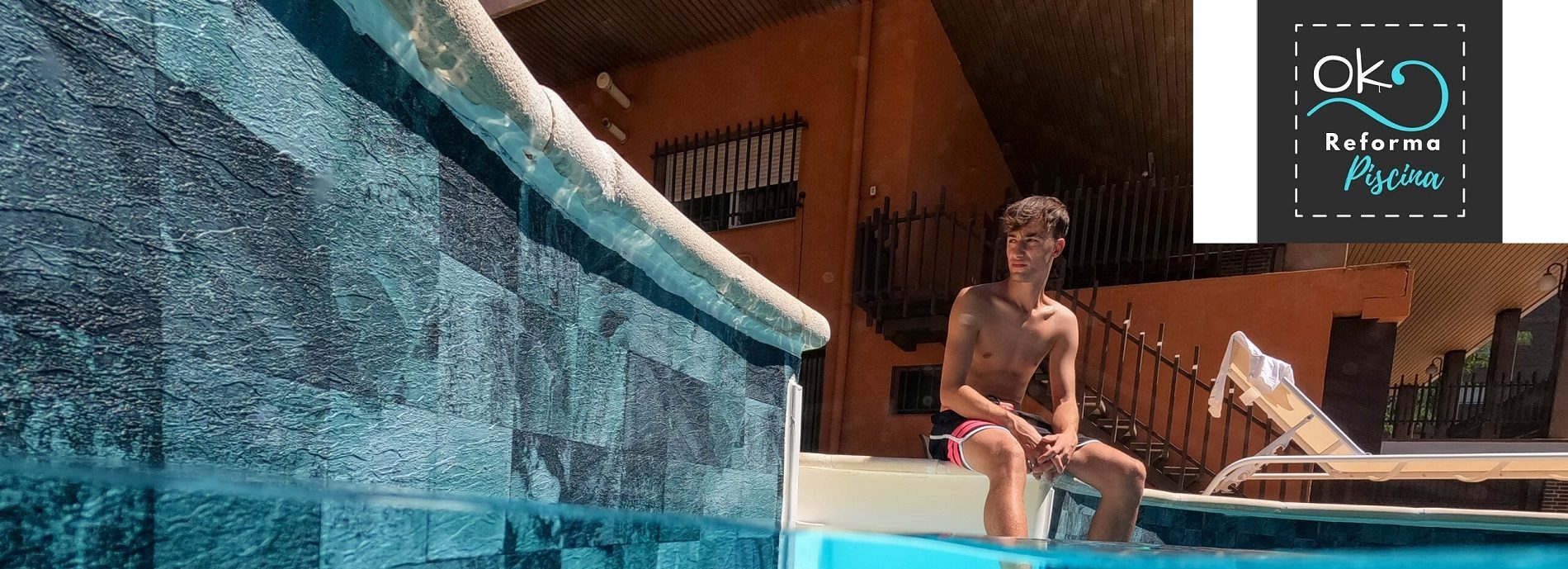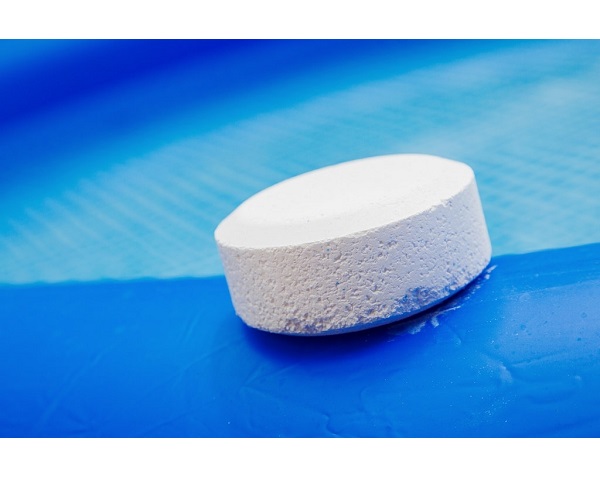
Table of contents of the page
En Ok Pool Reform within Chemical products and specifically in the Pool Chlorine section we are going to try to answer: What is the best chlorine for removable pools.
What is pool chlorine?

Chlorine is a naturally occurring chemical element and one of the basic components of matter.
How is chlorine in the pool produced?
- Chlorine is produced from common salt by passing an electrical current through a brine solution (common salt dissolved in water) in a process called electrolysis.
Why should we add chlorine to swimming pools?
Chlorine is added to water to kill germs, and this forms a weak acid called hypochlorous acid that kills bacteria (such as salmonella and as well as germs that cause viruses such as diarrhea and swimmer's ear).
Although, chlorine is not the only possibility in the pool water treatment (click and discover the alternatives to chlorine!).
What chlorine to use for removable pool

What chlorine to add to a removable pool
Because a removable pool we empty it every year, an ideal option is multi-action chlorine.
What is the best chlorine for removable pools?
Best chlorine tablets for removable pools

Chlorine is one of the most important and crucial chemicals in keeping the water clean and safe in your pool.
Choosing a type of bleach can be confusing, especially for beginners.
Fortunately, there are many resources available that can help you decide which one is right for your particular needs.
To start, it's important to do some research on the different types of pool chlorination methods before diving in headfirst to ensure you're using the best option for your pool size and location.
Additionally, many pool supply stores offer free consultations or demonstrations where they will show you their products and provide you with information on how to use them.
If you are still not sure what type of chlorine is right for your pool, talk to a professional and they will help you find the best one for your needs.
Depending on how often you plan to use your pool, you will need to choose the type of chlorine that best suits your particular needs.
The reason is because it has multiple effects including algaecide, flocculant and even anti-limescale and PH maintainer, so its use greatly facilitates the biochemical maintenance tasks of our pool.
There are several types of chlorine available for use in swimming pools, such as tablets, liquids, granules, sticks, powders, and shock treatments.
Each type has its own advantages and disadvantages, so it is important to do your research before choosing the right type for your pool.
In general, the best chlorine for above-ground pools is liquid chlorine or sodium hypochlorite.

What type of chlorine to use for swimming pools: which chlorine is better?
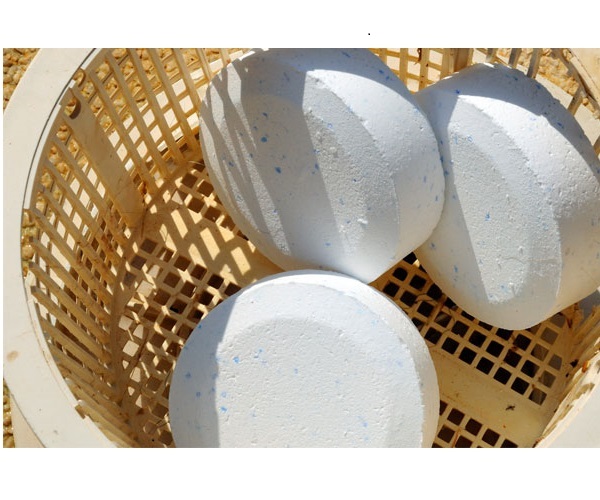
Formula and effects of sodium hypochlorite: chlorine gas in swimming pool water treatment
In summary liquid chlorine or sodium hypochlorite are considered the best types of chlorine for above ground pools because they dissolve easily in water and can be quickly measured and mixed for application.
However, it is important to do your research before choosing a type of chlorine to ensure you are using the most effective option to keep your pool clean and safe. Whether you're new to pool ownership or a seasoned professional, good luck determining which type of chlorine is best for your particular situation!
This is because these types can be diluted quickly in water and are easy to measure and apply. Liquid chlorine is also effective at controlling bacteria and algae, so your pool will be clean and safe for swimming.
If it is an above ground pool, it is important to choose a chlorine that dissolves easily in the water.
Otherwise, you may have trouble keeping the pool clean and free of algae, which can make swimming unpleasant or even unsafe.
Therefore, when choosing between different types of chlorine, opt for liquid chlorines or sodium hypochlorite instead of powder or shock treatments.
Liquid chlorine is one of the most effective chemicals for keeping pools clean and clear, especially if used in above ground pools.
It is easy to measure and mix with water, making application simple and straightforward. This type of chlorine also helps prevent the growth of algae and bacteria in the water, so your pool will be safe and enjoyable to swim in. If you're looking for the best chlorine for above ground pools, look no further than liquid chlorine or sodium hypochlorite.
Best chlorine for removable pools tablets: liquid chlorine
Buy liquid chlorine
Liquid chlorine price
Chlorine maintenance tricks for a children's pool

Best chlorine maintenance for removable pools with tablets
When maintaining a paddling pool, it is important to keep chlorine levels high enough so that bacteria and other microorganisms cannot infect your child.
Unfortunately, chlorine is harmful to little ones' skin and hair, which means you'll need to take some extra precautions when performing maintenance. Here are some tips to help you keep your child safe while he bathes:
- 1. Use diluted bleach or baking soda as an alternative to common pool chemicals.
- The lower concentration of these solutions makes them more respectful of children's skin and hair, while effectively disinfecting the water.
- You just need to make sure that any cleaning solution is rinsed thoroughly after each use of the pool.
- Otherwise, it may cause stinging or discomfort in the eyes.
- 2. Keep the paddling pool in a shaded area.
- This will prevent the chlorine from evaporating too quickly and help maintain its strength.
- If you're worried about keeping it covered at all times, just make sure your child doesn't spend too much time in direct sunlight when playing or swimming in the pool.
- 3. Add more chlorine as needed to maintain water quality.
- Appropriate chlorine levels for kiddie pools can vary based on factors such as climate and frequency of use, so be sure to check with your local pool supply store or home improvement center for advice. guide you on proper maintenance guidelines.
Overall, caring for a paddling pool can be a little awkward at times, but with these kid-friendly tips, your child should be able to enjoy the pool without any undue discomfort. Good luck and have fun
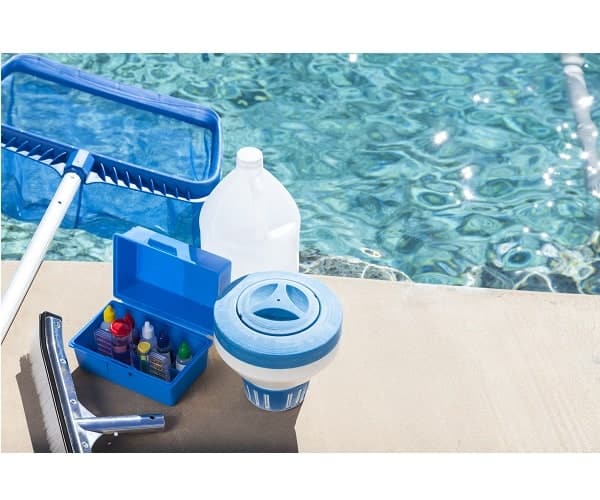
Useful guide to know how to clean the pool
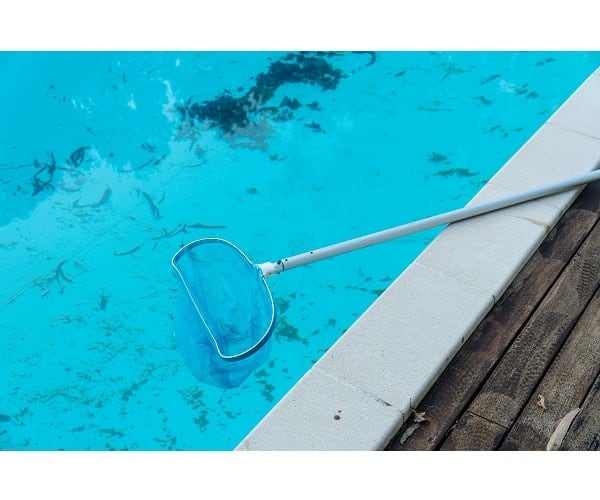
Guide to maintaining a pool with water in perfect condition
- 4. Always watch for signs of irritation or other health problems when using the pool with your child.
- If you notice any redness of the skin, rash, burning eyes, or other symptoms that may indicate an infection, immediately remove your child from the water and seek medical attention if necessary.
- Performing regular maintenance on your paddling pool is crucial to prevent these problems from occurring.
- With proper care and management, you can keep your child safe and healthy while swimming all summer long.
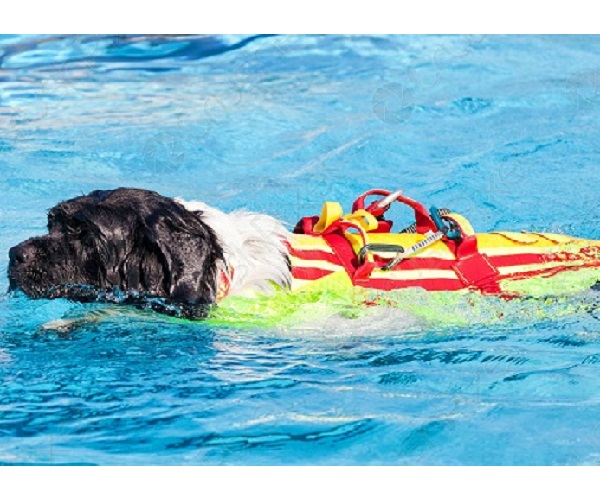
Pet pool safety: tips to avoid and how to act against drowning
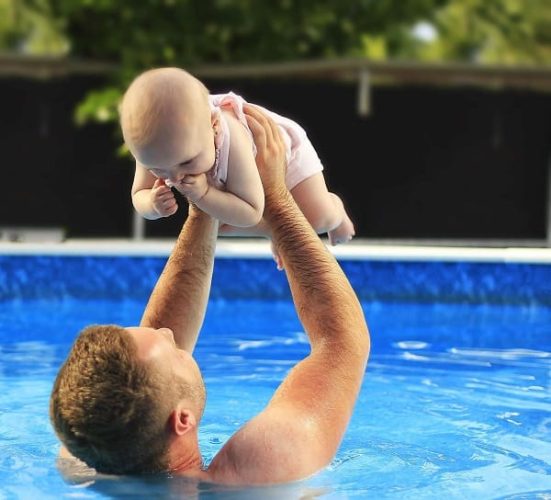
Pool regulations, rules and safety tips
- 5. Never leave your child unattended near a paddling pool of any type, whether it is filled with water or not.
- Children can be very curious and may try to get into the pool even if it is empty, which poses a serious risk of injury.
- Make sure an adult is always present when your child plays in or near the wading pool, at any time of the day or night.
Maintaining a chlorinated wading pool may seem like a difficult task at first, but by following these simple tips you can keep your little one safe and healthy while enjoying summer fun.
That's all for today! Thank you for reading our content and best wishes for your continued success! 🙂
Cleaning, Bottom, Chlorine and Emptying of the removable pool
Chlorine maintenance of a removable pool
Next, this video explains how to calculate the amount of chlorine to add, the weight of the pool for those of us who have it installed on a slab or terrace, how I have the purifier installed, how to clean the filter, how to clean the dirt from the bottom of the pool.
Above all, the most important thing is the precautions to take so that the pool does not fill to the top and sink the house.
